By Anna O’Neill, Victoria Cook, BBC London

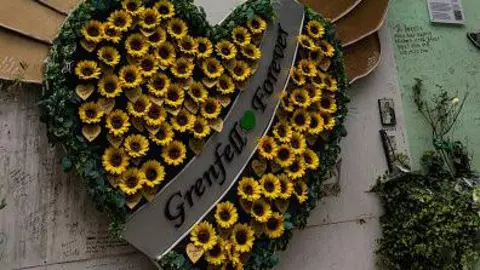 Getty
Getty
People affected by the Grenfell Tower fire say they feel “forgotten” seven years later.
Speaking to the BBC, a number of residents said there was not enough support and described some of those affected as the “walking unhealed”.
The Royal Borough of Kensington and Chelsea said it was committed to learning from the Grenfell Tower Inquiry, due to be published in September.
Last week, it also announced £42m in financial support to survivors and the immediate community.

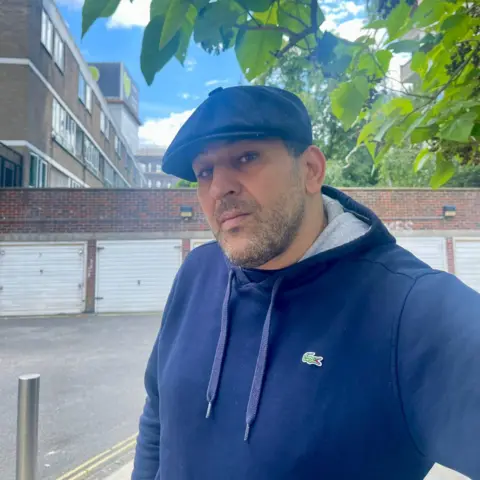
On the night of the Grenfell Tower fire on 14 June 2017, Sami Hannachi was on the phone to his friend and tower resident, Steve Power.
Mr Power, 63, went back into the tower to wake up his daughter and to try to get his dogs out.
He never made it out alive.
“It was a night we will never forget for the rest of our lives, ” said Mr Hannachi, who has lived on the Lancaster West Estate for more than 40 years, and is a core witness to the Grenfell Inquiry.
“We have been forgotten on this estate,” he said.
Mr Hannachi described what it has been like living on the Lancaster West Estate and in the shadow of Grenfell Tower since the fire: “We’ve been living in a building site for the last seven years,” he said.
“The refurb that has been happening is disturbing people every day. We’ve had no normality. We’ve been like the forgotten estate.”
The Royal Borough of Kensington and Chelsea said in response that noisy building works were restricted to Monday to Friday, 8am to 6pm.
It said it had offered temporary flats for people to move into, bookable work spaces and extra financial support to those residents affected by noise.

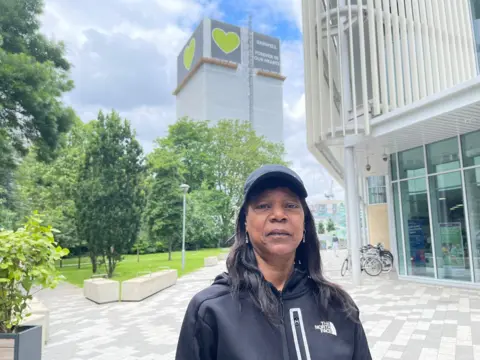
Jacqui Haynes chaired the residents’ association in the wake of the fire, and headed up “The Curve”, which was a space for residents to access support and therapy.
The service was ended two years ago by the the Royal Borough of Kensington and Chelsea.
Ms Haynes said residents of the estate are now treated by the council as if they are “back to normal”.
“We were given five years, which is a blanket set of years and individuals don’t fit into that,” she said.
Ms Haynes explained that for some locals, the support from the authorities was not adequate and she feels “most people haven’t healed”.
“It’s become this norm to be the walking unhealed,” she added.

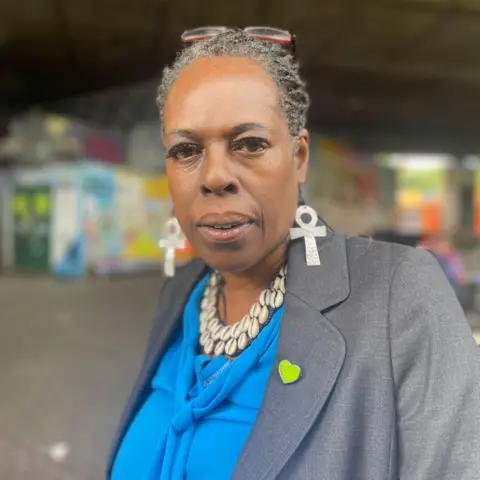
Lawyer and community activist Yvette Williams is a founding member of the Justice4Grenfell action group.
“You never un-see that night. You never un-hear that night. You never un-smell that night,” she said.
Ms Williams said she felt that justice for those who had died, the bereaved families and the wider community “still feels far away”.

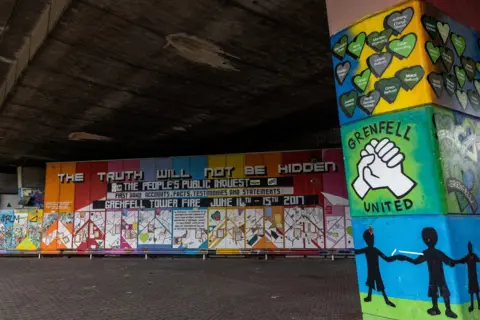 Getty
Getty
Under the A40 Westway stands the so-called Wall of Truth, and next to it a community green space.
Hope Gardens was created and is run by Marcia Robinson and her small army of volunteers.
This was where people came to donate food and clothes and their time in the days after the fire.
On the seventh anniversary it will host poetry and speeches and will be where many come to share their feelings after a twice-yearly silent walk takes place.

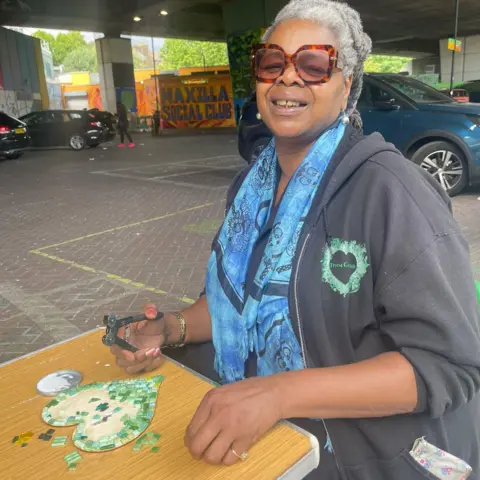
Elizabeth Campbell, leader of Kensington and Chelsea Council, said: “This council could and should have done more to keep our residents safe before the fire, and to care for them in the aftermath.
“We know how important the long-awaited Grenfell Inquiry report will be for the bereaved, survivors and the community.
“We are committed to learning from the report and recommendations, to ensure that a tragedy like Grenfell can never happen again.
“We will keep working to rebuild our relationship with our communities as we strive to meet the challenge the bereaved and survivors have set us – to become the best council for our residents.”








